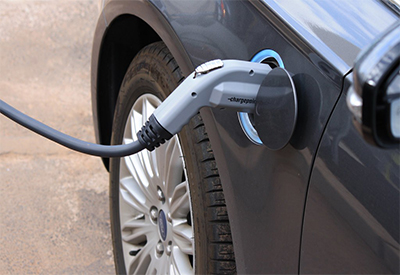12 New Electric Vehicle Fast-Chargers Coming to B.C.

June 25, 2019
Kelowna MP, Stephen Fuhr recently announced a $600,000 investment to FortisBC Inc. for 12 electric vehicle fast-charging stations in British Columbia. The announcement was made at the Kelowna International Airport, which houses two of the 12 fast-charging stations.
The funding is provided by Natural Resources Canada’s Electric Vehicle and Alternative Fuel Infrastructure Deployment Initiative, which aims to establish a coast-to-coast network of fast-chargers along the national highway system, natural gas refueling stations along key freight corridors and hydrogen refueling stations in major metropolitan areas. It is part of the Government of Canada’s more than $180-billion Investing in Canada infrastructure plan.
The Government of British Columbia is also contributing $300,000 towards the fast-chargers through its Clean Energy Vehicle Public Fast Charging Program.
Canada is committed to a clean energy future. This builds on the Generation Energy Council Report submitted to the Government of Canada. The report proposed principles on how to build our energy future in a way that ensures the economy and environment go hand in hand.
Quick Facts
- Transportation accounts for a quarter of Canada’s greenhouse gas emissions, almost half of which come from cars and light trucks. The Government is committed to putting more zero-emission vehicles on the road, which offer the potential to significantly reduce greenhouse gas emissions, particularly in the longer term.
- To support the transition to a low-carbon transportation system, the Government of Canada has set targets for sales of zero-emission vehicles in Canada, which are as follows: 10 percent of new light-duty vehicle sales to be zero-emission vehicles by 2025, 30 percent by 2030 and 100 percent by 2040.
- Building on previous investments, Budget 2019 provides $130 millionin support to expand the network of zero-emission vehicle charging and refuelling stations and is creating new incentives for people and businesses to purchase zero-emission vehicles.









![Guide to the Canadian Electrical Code, Part 1[i], 26th Edition– A Road Map: Section 56](https://electricalindustry.ca/wp-content/uploads/2022/11/Guide-CE-Code-2.png)






